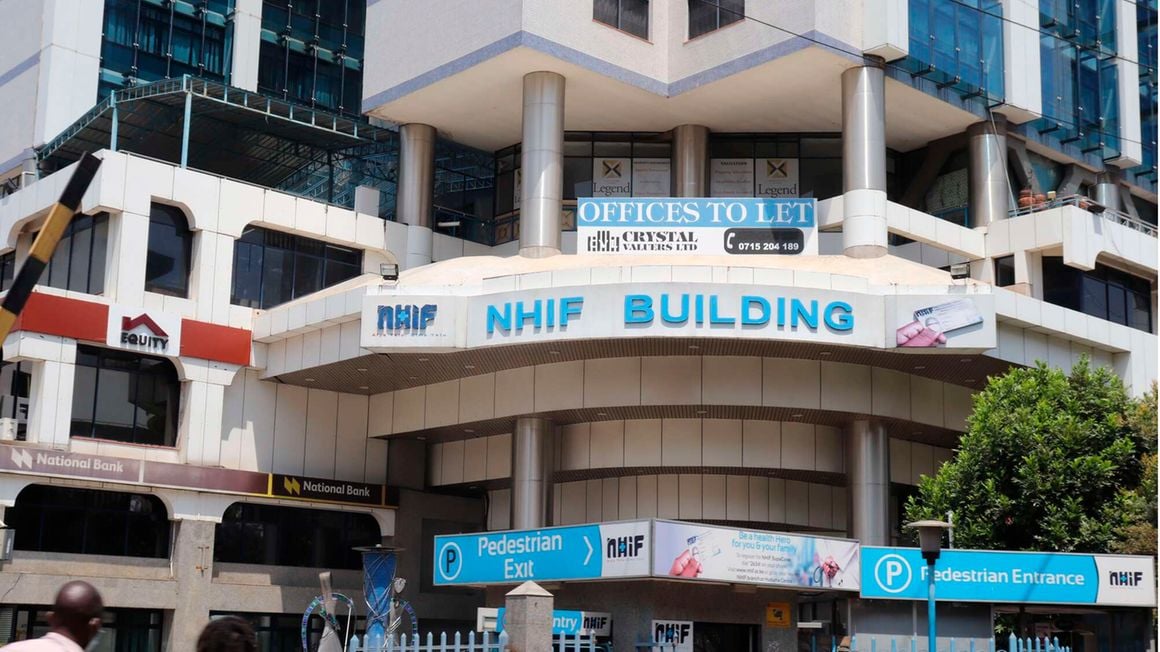
NHIF building in Nairobi. FILE PHOTO | NMG
Patients with chronic diseases such as cancer and kidney failure will receive unlimited National Health Insurance Fund (NHIF) cover under the proposed revised rules that
will increase monthly contributions for workers to 2.75 percent of their pay.The draft NHIF regulations published on Tuesday are seeking to remove caps on benefits that patients with chronic illnesses can access, easing the burden on families.
Patients will continue to access costly services such as dialysis, chemotherapy and radiotherapy in public hospitals once they exhaust their limits in private facilities like Nairobi Hospital.
Read: NHIF takes Sh39bn hit from rising defaults
The changes are tied to the proposed increase in contributions to share of the salary, which will see workers earn more than Sh35,000 monthly pay more to the NHIF
Those earning Sh30,000 will pay Sh962.50 monthly from the current Sh950 while those on Sh100,000 will part with Sh2,750 from Sh1,700 when the new rates are adopted in July.
“A beneficiary suffering from a chronic illness shall, upon exhaustion of his or her benefit limits, access treatment for the chronic illness from a public health care provider subject to the applicable benefits package,” reads the draft.
The latest plan marks a U-turn from the initial draft that was published last year with a proposal that patients with chronic illnesses and seeking to enjoy NHIF cover be limited to public hospitals alone. It also retained the current limits on amounts covered.
The only requirement will be that the patient’s NHIF monthly premium payments remain up to date. “A beneficiary shall access treatment for the chronic illness if there are no arrears in the contributions in favour of the beneficiary,” says the draft.
The latest proposal, if passed, will offer a boost to low-income patients and affected households given a majority of them rely on the NHIF for diagnosis, drugs and hospital expenses.
NHIF does not describe a chronic disease, but it is expected to rely on the US public health agency, the Centres for Disease Control and Prevention (CDC), definition.
The CDC defines a chronic disease as a condition that lasts one year or more and requires ongoing medical attention or limits activities of daily living or both.
Giving unlimited medical cover to patients with chronic illnesses will mark a departure from the current practice in which NHIF puts a limit on the spending, exposing such patients to high out-of-pocket spending once they exhaust the cover.
Cancer patients are for instance covered up to 20 radiotherapy sessions a week at a cost of Sh3,600 and a maximum of six sessions for 25,000 per chemotherapy session.
Those exhausting the limits before the end of the year are forced to use cash for treatment even as they continue making premium payments to NHIF.
Read: NHIF pays voluntary contributors Sh48,800
For a kidney transplant, NHIF contributes a maximum of Sh500,000 and covers two dialysis sessions a week for those with renal failure, with each session costing Sh9,500.
→ palushula@ke.nationmedia.com




No comments :
Post a Comment